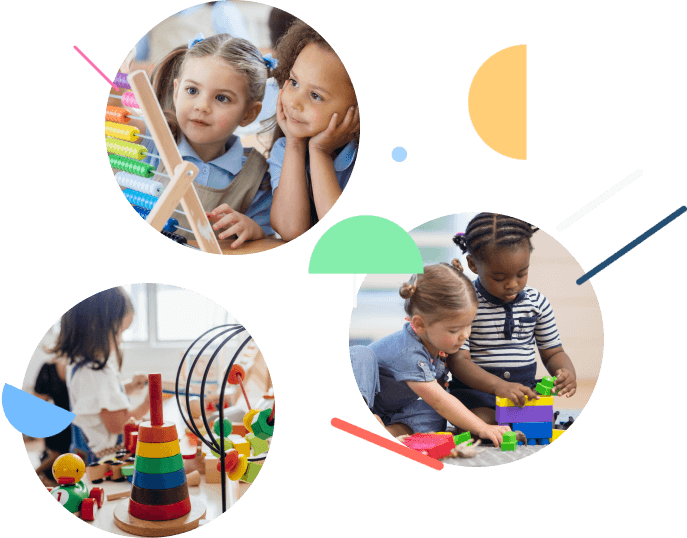The biggest difference of the center, which is approved by the Ministry of Family and Social Affairs, is the first-hand experience.
Counseling services are provided for families to cope with any problems they may have with their children or themselves. At the same time, psychological counseling services are provided under one roof to support the development of differently developing/special learning children in a holistic environment and to all children in the development process.
The programs also cover the home, family and school areas, as the work done only in the centers is insufficient for children with different developmental characteristics or who have been subjected to psychological pressure, and for the families who have to deal with all these issues.
All activities are conducted in English as well as Turkish so that foreign families living in Turkey can also benefit.
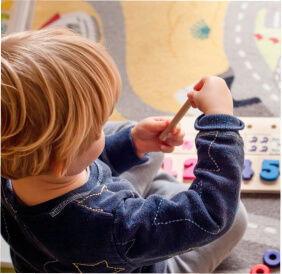
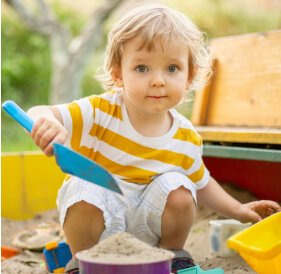
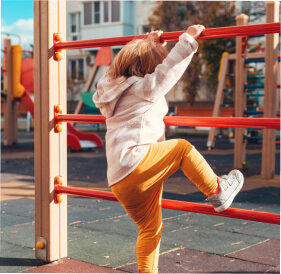
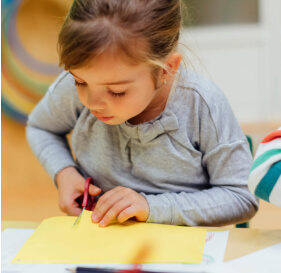
Special Developing Child Support Programs
Pervasive developmental disorders such as autism spectrum disorder, Asperger syndrome, Rett syndrome, disintegrative disorder, atypical autism...
Sensory-Cognitive Integration Support Programs
Some people have problems with activities of daily living if the flow between sensory/sensory perception and motor response is impaired. However...
Communication Support Programs
Communication is one of the most important aspects of adaptation to the social environment. In the womb...
Physical Coordination Improvement Programs
Children/persons with special development and in need of customized learning programs should be physically competent, strong and self-confident...
Child and Adolescent Psychological Counseling and Guidance
Conscious parents receive psycho-pedagogical support from the very beginning of pregnancy and receive the support they need...
Adult and Family Counseling
At the Private Noah's Ark Family Counseling Center, there is a special program to improve mother, father, and child relations within the family system...
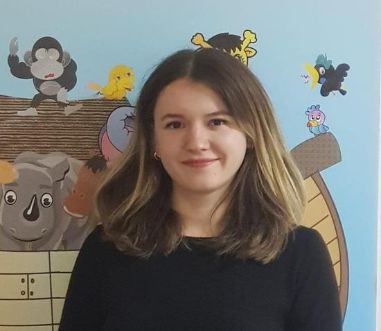
Begüm Emeçtimur graduated from Marmara University, Department of Psychological Counseling and Guidance. During her undergraduate years, she worked at Self Psychology Academy, Beşiktaş Anatolian High School…
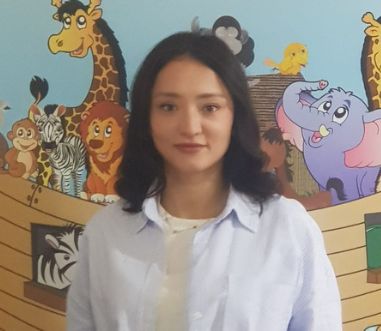
In 2016, she graduated from Işık University, Faculty of Arts and Sciences, Department of Psychology. In 2018, she completed her Master’s Degree in Clinical Psychology at Okan University…
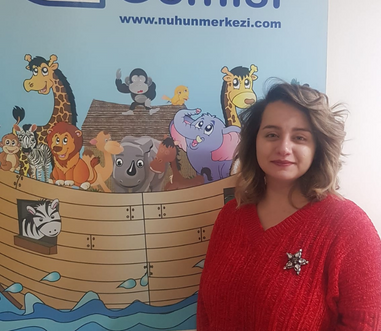
Child Development Specialist Burcu Arslan completed her undergraduate education at Üsküdar University, Faculty of Health Sciences, Department of Child Development. She completed her graduation internship…
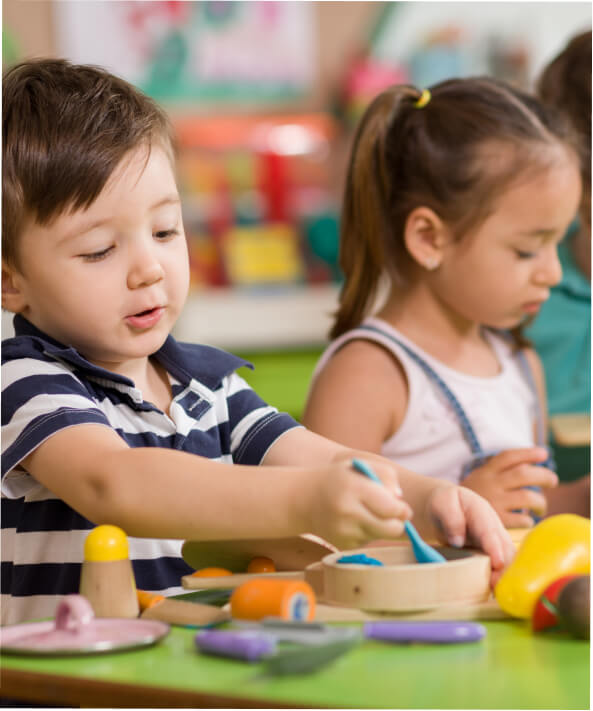
Now! Early and continuous education…
Families play a key role in the development of the child during infancy. It is important to play with the baby, to talk to him/her, to sing songs, to ensure that he/she receives sufficient stimuli, to introduce him/her to social environments, and to familiarize him/her with different environments. But it is also important to get support from specially trained specialists and to start this process early.
During the rapid development and adaptation to the outside world in the first three months after birth, it is very important to monitor both the mother and the baby. Monitoring the baby’s nutrition, sleep, height, and weight curve and observing both physical and neurological development with the pediatrician from the first month after birth is essential for the healthy growth of the baby. In the months following this period, the baby’s development should be routinely monitored and the mother’s biggest help in this period is the source books and a child development and education specialist who will follow the development of her baby together with her doctor. It is especially important for our mothers who will start working after a while to be in cooperation with a specialized institution and to include the auxiliary family members or babysitters who take care of the baby in this cooperation. A home/child room environment structured with the right stimuli according to the age characteristics of our baby is also necessary. You can apply to family counseling centers to follow the development of neurological, cognitive, language, and motor development. In addition, it will be healthy to follow the “early infant stimulation” program, if it is among the programs of the center you apply to, together with your individual specialist at the center, in order to acquire the infrastructure that is specially programmed for babies, equipped with the necessary stimuli, and will enable them to use their genetic characteristics at full capacity.
Communication disorder: Impaired understanding of mutual verbal and non-verbal expressions. This occurs during the process of hearing, language acquisition, or speech. It can be developmental or acquired. Therefore, if your child does not react as expected when his/her name is called or called and at the same time; If his/her sign language and gestures are not understandable If there are other developmental problems If he/she makes sounds without meaning and repetitive movements are observed If he/she is reluctant and indifferent to what is happening around him/her If he/she has difficulty adapting to new environments and situations If he/she prefers to play alone If he/she overreacts when he/she does not have requests or when he/she is prevented… It will be healthy to monitor him/her and share your observations with your doctor and your specialist at the family counseling center. If there is no hearing problem or pervasive developmental delay, it is important to note that such communication problems can be observed in children who are less cared for, who grow up alone, or who experience severe emotional situations such as sibling jealousy, family traumas and who have an introverted character. Your doctors and the child development specialists, sensory integration specialists, and speech therapists at the counseling center will guide you in these matters and draw up the necessary development program.
Some children may start speaking later than their peers, and it is not correct to conclude that there is a problem in every child who speaks late or cannot say certain sounds correctly. Another name for a common speech disorder in children that causes a serious delay or impairment in language performance for no identifiable reason is “specific language impairment”. This delay is usually within normal limits and although many children start speaking late, they can soon reach the level of their peers. In children who are left alone during infancy, who do not spend much time with people, who are left to their own devices, who do not speak too much, in cases where two languages are used in the family, boys may start speaking later than girls. Especially in children who watch television in the 0-3 age period, have detached from the outside world, tendency to be on their own, are more interested in objects, give up emotional exchange, not speaking, not being interested in their peers, not looking when they are called can be observed. Shocks experienced during introverted personality structure, sibling jealousy, family accidents, and similar traumatic situations can also affect the speech age of children. Delay in speech may occur as problems in receptive or expressive language, problems of neurological origin, articulation/phonology problems, fluency, and voice disorder problems. In this case, it will be useful to be in contact with your doctor, pediatric neurologist and counselor to check whether there are any neurological problems such as premature birth or damage as a result of complications during birth, sensory impairment and hearing loss and to follow the developmental steps. Sensory integration specialists and speech therapists will also cooperate in the process of education and therapy when deemed necessary in the process of following the development of your baby/child.
A child’s genes can influence his or her ability to learn, but it is the educational opportunities provided by the family that will create the opportunity to learn. The family, the environment, and the school will be as influential in your child’s development as the genes. It is impossible to predict the level a child will reach in the future in infancy. However, we know that as a result of intensive education, the vast majority of children with developmental delays learn to read and write, complete primary education, attend high school and university, and learn a second language. They are able to participate in working life and lead independent lives. However, this is the result of regular and disciplined work. Realistic plans should be made by evaluating the child correctly. With appropriate education programs, children with developmental delays or disorders can achieve many successes and lead meaningful lives in society. As always, early and continuous education and plenty of repetition are the most important factors.
My daughter Kübra had focusing and learning difficulties. In addition, she was so active that I was worried about how she would start school and how she would sit calmly in the classroom. As a result of the studies initiated at the Private Noah's Ark Family Counseling Center, in just 1 month, Kübra started to gather her attention for 25 minutes, sit at the table, listen to what was said, and apply it. There was such a rapid development that we were surprised. I am very happy with the result.
We went to many centers to find a solution to the developmental problems my son Eren was experiencing, but we couldn't get any results. When we came across the services offered by the Private Noah's Ark Family Counseling Center under a single roof and the friendly and expert team that took care of our every problem, we realized that we had found what we were looking for and started working immediately. The results we received in a short time are really satisfying.
